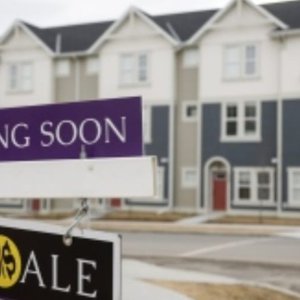FACTS TO KNOW WHEN SHIFTING FROM VARIABLE MORTGAGE TO FIXED RATE
Facts to know when shifting from variable mortgage to a fixed rate Some homeowners may be asking if they should lock in their variable mortgage rate now before it gets even higher later on, given that rates for variable mortgages are on the rise. It’s not a “foregone conclusion that everyone should be switching to fixed,” as mentioned by James Laird, co-founder of the website RateHub.ca, in an interview, despite the fact that variable rates are rising. 53% of Canadians picked a variable-rate mortgage in the second half of last year, according to a report published by Canada Mortgage and Housing Corporation in the spring. This is a significant increase from the 34% who opted for a variable rate in the first half of 2021. The survey said that while the tendency carried over into 2018, it appears to have levelled down in the context of increased interest rates. The great news is that there is no fee for homeowners to switch from a variable to a fixed rate. But the homeowner is obligated to stay with their current lender and accept the prevailing fixed rate. You simply won’t have time to look around. To switch to a fixed interest rate, you need to make a phone call to your lender. Laird stated, “They tell you, ‘Okay, our current set rate is this,’ and you’re kind of stuck with it.” Homeowners can only do a fixed-rate mortgage conversion if they choose a new term length that is longer than the one they are currently in the midst of paying off. A homeowner would have to move to a new mortgage term of at least three years if there are still three years left on the current term. Alternatively, you could choose to enter into a new five-year fixed-rate term. The one and only rule are that the mortgage term cannot be reduced by making the transition to a fixed rate. CMHC data shows that as mortgage rates have increased, the spread between them has widened. According to Ratehub.ca, five-year variable rates can be anywhere from around 2.50 percent to 3.35 percent, while five-year fixed rates can be anywhere from about 4.14 percent to as high as 6.04 percent. It’s great news that homeowners who wish to move from a variable to a fixed rate will incur no additional costs in doing so. However, the homeowner must remain with their current lender and accept the fixed rate now in effect. There won’t be any time for exploring. You must contact your lender over the phone in order to change to a fixed interest rate. As Laird put it, “They tell you, ‘Okay, our current set rate is this,’ and you’re kind of stuck with it.” A fixed-rate mortgage conversion can only be done if the new term length is longer than the one the homeowner is currently in the midst of paying down. If there are still three years left on the present mortgage term, the homeowner would be required to switch to a new mortgage term of at least that long. You may also renew your loan for an additional five years at a fixed interest rate. You can’t shorten your mortgage by switching to a fixed rate, that’s the only regulation. According to CMHC’s numbers, the disparity between mortgage rates has grown in recent years. Ratehub.ca reports that the range for five-year variable rates is roughly 2.50–3.35%, while the range for five-year fixed rates is roughly 4.14–6.04%. When it comes to homeowners, both experts agree that the decision between a fixed and variable rate should be based on individual risk preferences. Laird recommended a fixed-rate mortgage for anyone who doesn’t have a high risk tolerance. Also, if their monthly income is low and they don’t have much room in the budget to absorb any payment increases, a fixed rate is the better option. He also said that homeowners with a lesser home loan debt or who might need to break their mortgage contract might be better off with a variable rate. Laird explains that “if you’re paying down your mortgage quickly, the rate today is the most relevant because your amount is bigger today and is going to decline swiftly by next year,” making a variable rate mortgage a better option for people in these situations or who have a tiny residual balance. Another consideration is whether or not you plan to refinance your home in the near future; if so, you should keep your mortgage rate variable. The penalty for leaving a variable rate mortgage is far less than leaving a fixed rate mortgage if you plan on selling your home and relocating. According to Laird, variable interest rates have consistently saved customers money over fixed ones. Borrowers concerned about their ability to keep up with their mortgage payments if they select a variable interest rate may find it helpful to calculate what their payments would be with a fixed interest rate and then make their mortgage payments based on this higher amount, as suggested by Larock. That way, he explained, the homeowner can put all of the extra money toward the principal in one lump amount, and he or she will already have a safety net in place in case interest rates go up. Related posts. FACTS TO KNOW WHEN SHIFTING FROM VARIABLE MORTGAGE TO FIXED RATE by admin123 A transformation of Danforth Village neighbourhood by admin123 CIBC: Housing deficiencies linked to undercounted demand by admin123 April witnessed an increase of 8% in Canada’s housing starts by admin123 The Finalization of 10Block Studio’s Plans for Luxury Condo by admin123 A 69-Storey Stacked Tower is being proposed by Capital Developments by admin123
FACTS TO KNOW WHEN SHIFTING FROM VARIABLE MORTGAGE TO FIXED RATE Read More »



